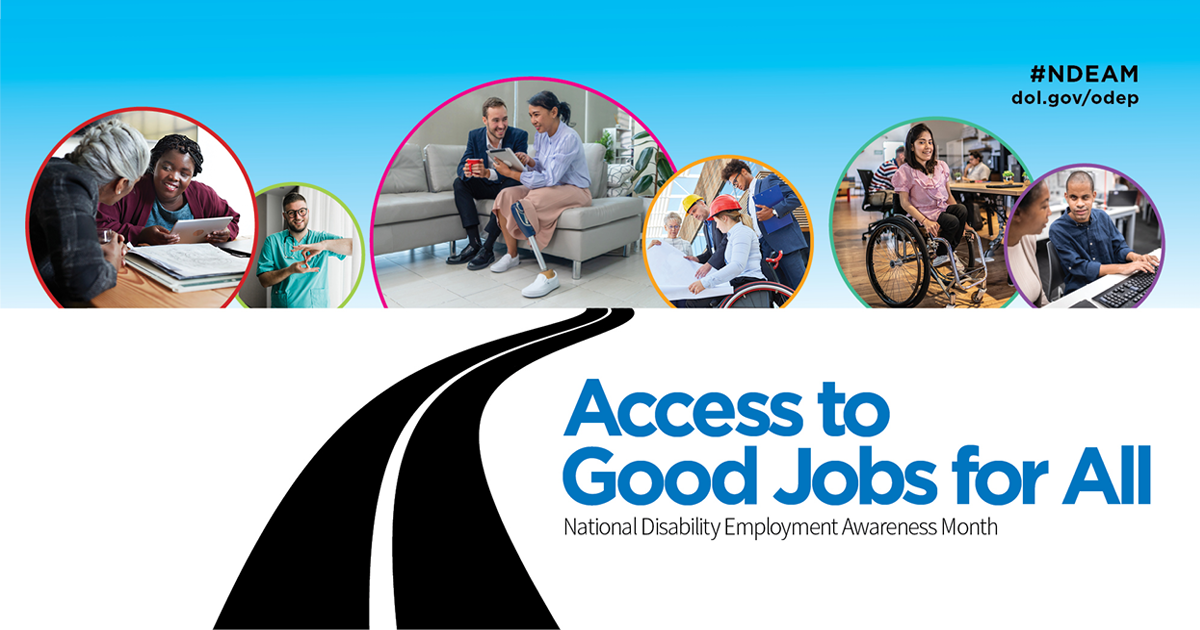 Depending on where you live, winter can mean shorter days and overcast skies. For some people, this change in seasons leads to what is called Seasonal Affective Disorder or SAD. SAD is a form of depression that can result in lower energy levels and decreased motivation. If these signs sound familiar, here are five tips that you can try to avoid having SAD symptoms impact your work performance.
Depending on where you live, winter can mean shorter days and overcast skies. For some people, this change in seasons leads to what is called Seasonal Affective Disorder or SAD. SAD is a form of depression that can result in lower energy levels and decreased motivation. If these signs sound familiar, here are five tips that you can try to avoid having SAD symptoms impact your work performance.
1. Brighten Your Workspace
Less sunlight due to shorter days is one of the leading causes of SAD. Increasing exposure to natural and synthetic light can improve your mood and minimize other symptoms of SAD. For example, if you work at a desk, try moving your desk closer to a window to take advantage of more natural light. If you can’t move your desk, there are several types of light products, such as sun boxes, light visors and sun-simulating desk lamps you can use that mimic daylight.
2. Take time to have Lunch with a Friend or Coworker
Having lunch with a coworker is a great way to break up your day, reduce feelings of isolation and brighten your mood. If you work from home, try having a virtual lunch or coffee with a coworker.
3. Use Company Resources
Many employers offer workplace options that can help with SAD symptoms. Check with your employer to see what changes you can make to your workstation or surroundings. In addition, don’t overlook benefits that your employers may offer, like mental health services, gym memberships and mental health days.
4. Adjust Your Work Schedule
Adjusting your work schedule can be a great way to increase your time outside during daylight hours. While you may not be able to completely change the hours you work, adding even a single hour more of daylight each day can make a positive impact on your health. The Americans with Disabilities Act covers SAD as a disability so a schedule change may be a reasonable accommodation. You can learn more about SAD and examples of reasonable accommodations through the Job Accommodation Network.
5. Go to a Public Workspace
For those who work from home, a coworking or shared office space may be an option. Coworking spaces often have lots of natural light and provide opportunities for social interaction. Many local libraries and community centers have study rooms you can reserve or that are available on a first-come, first-served basis. You may also find worktables at a local café or coworking spaces that allow for one-day desk rentals at low cost.
How Can Ticket to Work Help
Social Security's Ticket to Work (Ticket) Program supports career development for people ages 18 through 64 who receive Social Security disability benefits (SSDI/SSI) and want to work. Through this free and voluntary program, eligible participants can work with service providers to receive the services and supports they need to find and maintain employment as they move toward financial independence through work.
The Ticket Program can support you along your employment journey. Through the Ticket Program, a service provider such as an Employment Network (EN) can help you identify and request accommodations to help mitigate your disability.
Learn More
To learn more about the Ticket to Work Program, call the Ticket to Work Help Line at 1-866-968-7842. For callers who are deaf, hard of hearing, or have a speech disability, call 1-866-833-2967 (TTY). Hours are Monday through Friday, 8 a.m. - 8 p.m.; or visit choosework.ssa.gov.

 There are some questions you can expect to be asked during most job interviews. “Where do you see yourself in five years?” is one of the most common questions. Preparing your answers for commonly asked questions can help you shine during the interview process.
There are some questions you can expect to be asked during most job interviews. “Where do you see yourself in five years?” is one of the most common questions. Preparing your answers for commonly asked questions can help you shine during the interview process. Each October, we celebrate National Disability Employment Awareness Month (NDEAM). Led by the U.S. Department of Labor’s Office of Disability Employment Policy, NDEAM highlights the value of workers with disabilities in the workforce. This year’s theme is “Access to Good Jobs for All.” The Ticket to Work (Ticket) Program is joining the celebration and providing services and supports that help many Social Security disability beneficiaries succeed this year and beyond. If you’re starting your work journey, here are some ways to start looking for a job that’s the right fit for you.
Each October, we celebrate National Disability Employment Awareness Month (NDEAM). Led by the U.S. Department of Labor’s Office of Disability Employment Policy, NDEAM highlights the value of workers with disabilities in the workforce. This year’s theme is “Access to Good Jobs for All.” The Ticket to Work (Ticket) Program is joining the celebration and providing services and supports that help many Social Security disability beneficiaries succeed this year and beyond. If you’re starting your work journey, here are some ways to start looking for a job that’s the right fit for you. Working from home has become more popular over the past few years, but it’s not for everyone. Although working from home can offer many benefits including flexibility and a less stressful environment, people can miss out on in-person social interaction. A great option for someone looking for a more flexible position but also needing social interaction is a hybrid job. So, what is a hybrid job and how do you know if it’s right for you?
Working from home has become more popular over the past few years, but it’s not for everyone. Although working from home can offer many benefits including flexibility and a less stressful environment, people can miss out on in-person social interaction. A great option for someone looking for a more flexible position but also needing social interaction is a hybrid job. So, what is a hybrid job and how do you know if it’s right for you? Career fairs can be one of your best tactics for finding the right job. At an in-person career fair where there are many employers in the same place, you can talk to several about their organizations and potential openings. Recruiters are there to find potential employees and will answer questions you may have about their organization or the potential job opportunities. They are often the first step in the hiring process before you meet with a hiring manager.
Career fairs can be one of your best tactics for finding the right job. At an in-person career fair where there are many employers in the same place, you can talk to several about their organizations and potential openings. Recruiters are there to find potential employees and will answer questions you may have about their organization or the potential job opportunities. They are often the first step in the hiring process before you meet with a hiring manager. With lower stress levels, increased flexibility and a better work-life balance, working from home is becoming more popular. Unfortunately, scammers have picked up on the increased demand for work from home jobs. Ask yourself these questions to help determine if a work from home job sounds like a scam.
With lower stress levels, increased flexibility and a better work-life balance, working from home is becoming more popular. Unfortunately, scammers have picked up on the increased demand for work from home jobs. Ask yourself these questions to help determine if a work from home job sounds like a scam. Have you ever wondered why you’re not getting responses to all those resumes you’ve been sending to employers? There could be a variety of reasons, but today we're talking about one specific reason ─ an Applicant Tracking System or ATS.
Have you ever wondered why you’re not getting responses to all those resumes you’ve been sending to employers? There could be a variety of reasons, but today we're talking about one specific reason ─ an Applicant Tracking System or ATS..png) Searching for a job is time consuming. We know how frustrating it can be when you don’t immediately find a job. One way to make the most of your opportunities is to avoid making some of these common mistakes.
Searching for a job is time consuming. We know how frustrating it can be when you don’t immediately find a job. One way to make the most of your opportunities is to avoid making some of these common mistakes. Summer jobs are not only a great way to try working but also to learn what employers expect of employees in any employment position. A summer job may be temporary, but the lessons and skills learned can last forever. In this blog post, we explore five ways to make the most of your summer job.
Summer jobs are not only a great way to try working but also to learn what employers expect of employees in any employment position. A summer job may be temporary, but the lessons and skills learned can last forever. In this blog post, we explore five ways to make the most of your summer job.